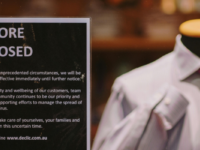This week we talk to Lyly Greca, founder of Miei Fiori, a flower and gift social enterprise that harnesses the money corporates spend on office flowers and gifts to help close the poverty gap in Australia. Only two years old, the enterprise has become B-corp certified – proving its credentials in governance, transparency, environmental and social impact – doubled its team size and exceeded its first annual charity donation target within six months.
ISB: What inspired you to start a social enterprise devoted to combat poverty?
LG: Born into a very hardworking and entrepreneurial family, problem solving to ensure return on investment is part of my DNA so I’ve been fortunate to understand the value of money and smart choices. After learning that over 10 per cent of our Australian population is living below the poverty line and almost half of those are children, I wanted to take matters into my own hands to explore how I could make a difference. Whilst volunteering as a committee member on the Monash Children’s Hospital Charity Gala, I identified an opportunity to harness the money businesses regularly spend on flowers and gifts to a good cause.
ISB: How did you fund the start-up and early phase of the enterprise?
LG: I started investing in properties from the tender age of 18 whilst working part time and studying full time so to help fund my start-up, I tapped into my savings and some equity of my homes.
ISB: And what about marketing, how did you get the message about Miei Fiori out to your prospective customers?
My primary target audiences are businesses with existing and on-going flower and gifting requirements. To help share my story and communicate my message to prospective customers, I invested on a custom-built website and my door-to-door manual labour. To share our beautiful work, facts, trends, tips and latest news, I invested in social media with targeted paid ads to help increase my reach and presence.
ISB: What was the biggest roadblock you encountered since starting the business, and how did you overcome that?
LG: After the initial common challenges as a start-up, cashflow was the next potential roadblock I had to problem solve due to my clients’ long payment terms of 60 and 45 days. To relieve some of the forecasted cashflow tension, I engaged in some honest conversations with some of my clients to request a shorter payment term or prepayment arrangement. I am very lucky; a lot of my customers are very supportive and understanding.
ISB: How successful have you been in your aim to operate with “zero per cent wastage”, and what challenges does that aim present?
LG: To support my goal for “zero wastage”, I have committed to only service future and ongoing requirements so I can plan and procure stock to meet my clients’ exact briefs. I have been extremely successful thus far, however, the cost of this strategy is not having the capacity to service the market for last-minute and spur-of-the-moment purchases as I do not hold onto any surplus stock to cater for them.
ISB: Finally, what was the best piece of advice you have received you could pass on to others with an idea they’d like to turn into a business?
LG: Understand why your business should exist, identify the problem you want to solve or gap you feel needs filling. Have an open mind and honest heart. Surround yourself with successful people and continue to learn from others to minimise mistakes – knowledge is power. Know your business finances and love your numbers. Understand the pros and cons of the various business structure options. Collaborate and co-operate. Embrace problem solving as plenty of issues will arise over the journey. And, business plans evolve over time so just get started and then and don’t give up!















